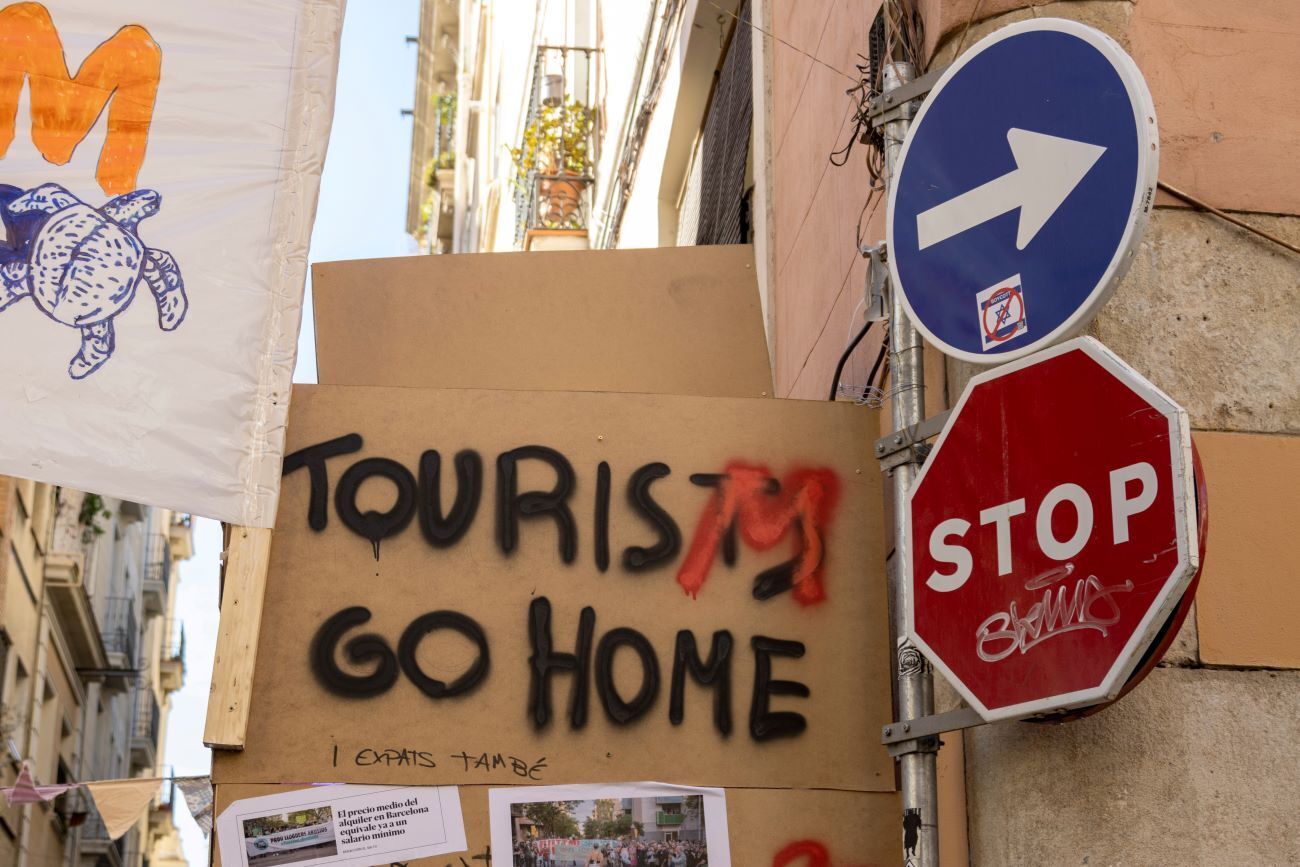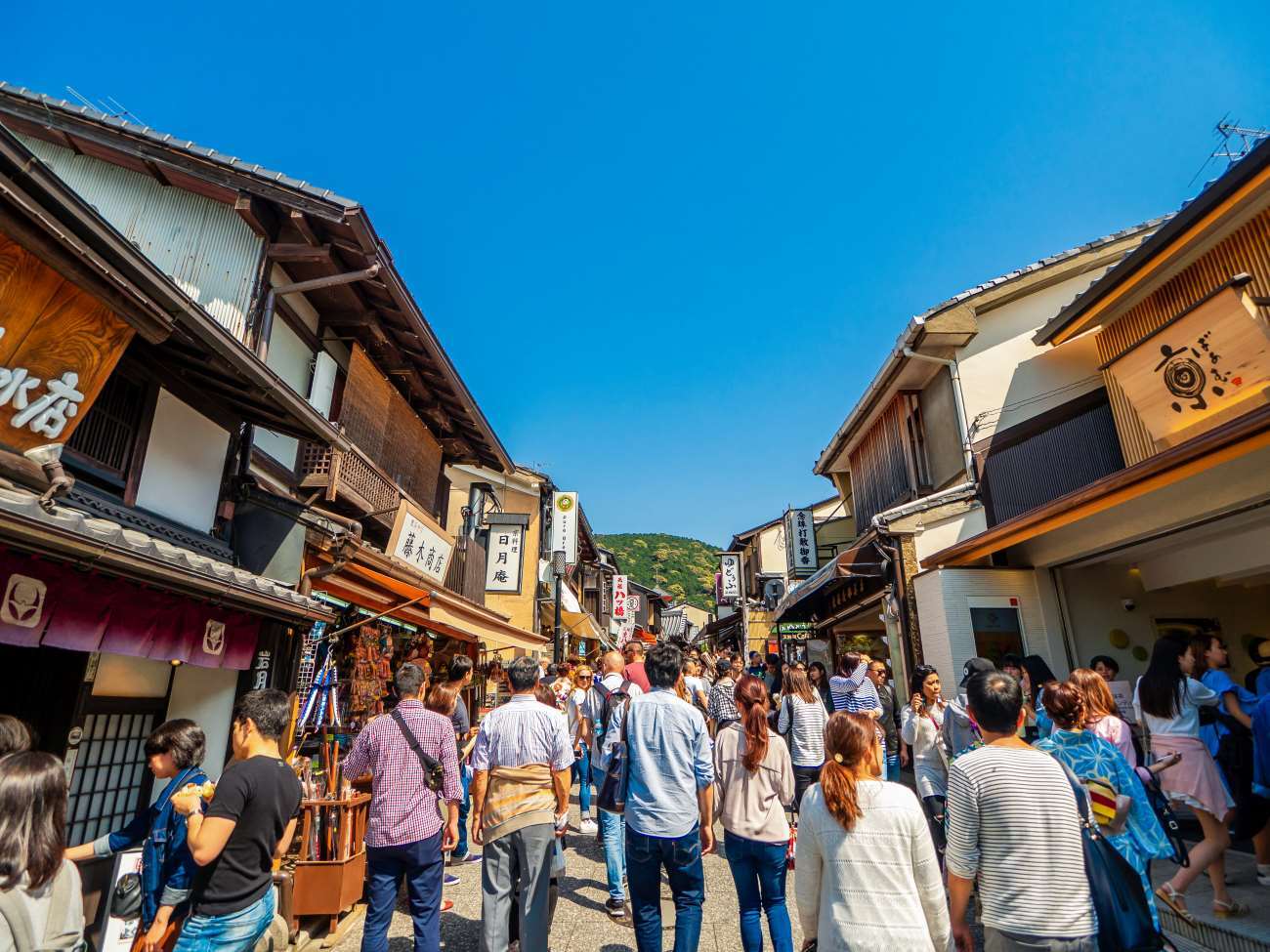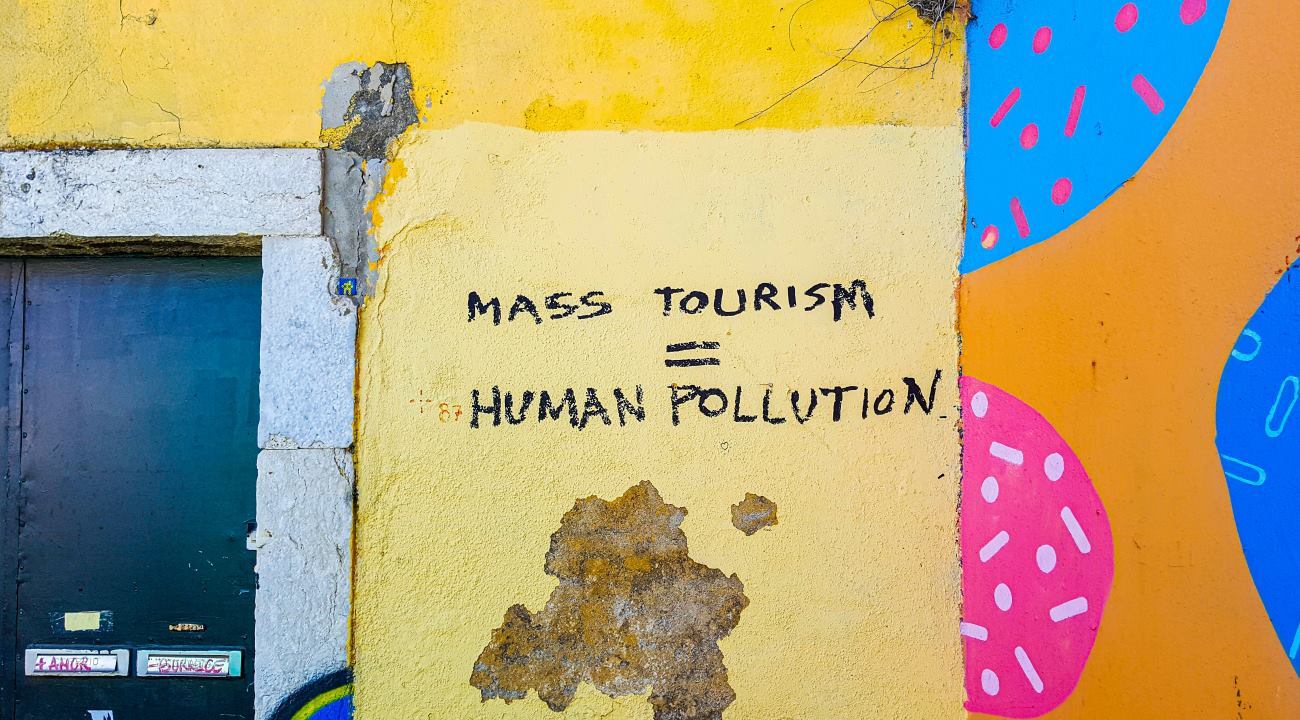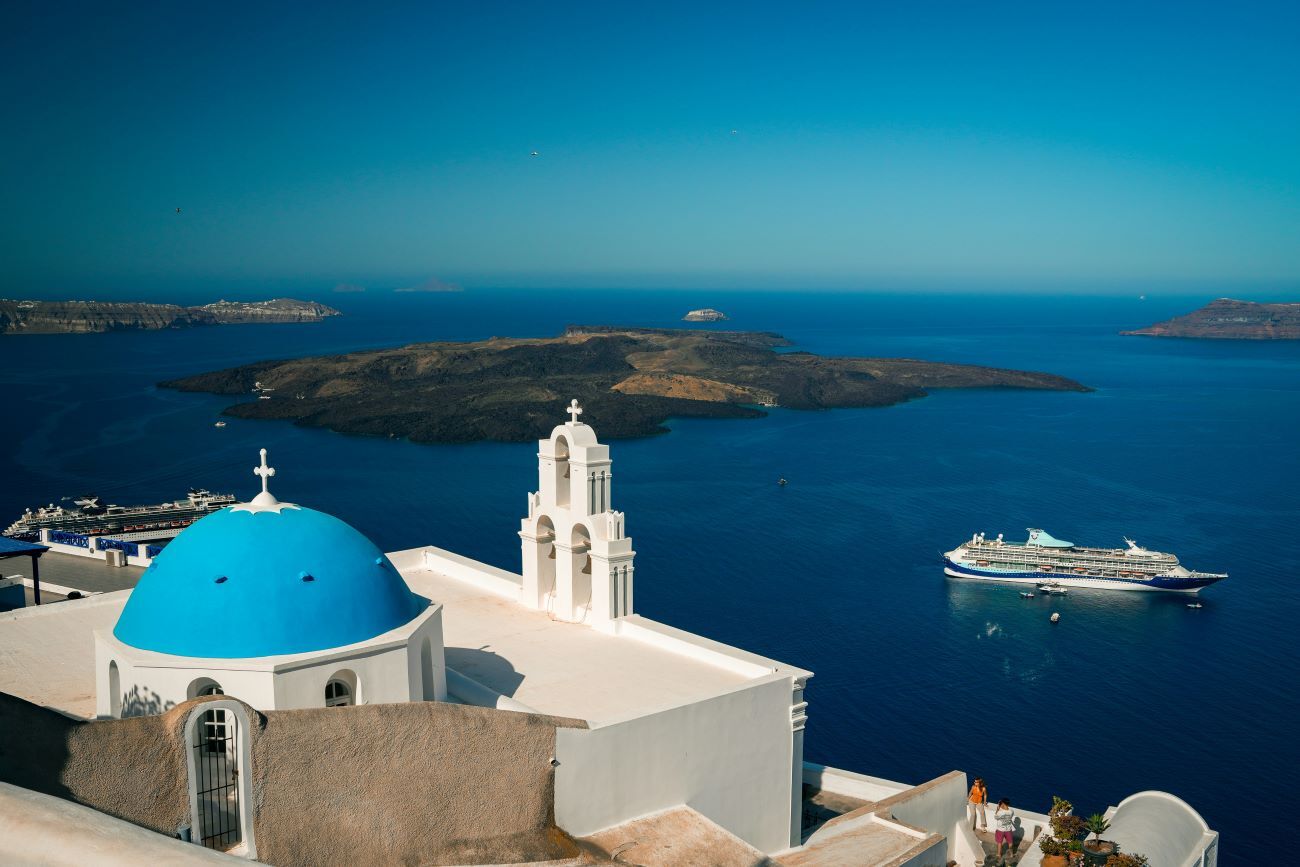In focus: How climate concerns are affecting the way we travel
The travel industry has come back with a bang since the end of the pandemic. In fact, according to strategists McKinsey & Company, the industry is on track for a full recovery by the end of this year. The luxury sector in particular is thriving, with Virtuoso reporting a 211% increase in sales for the first half of 2024 compared with the same period in 2019. While the industry’s post-pandemic rebound is positive, this dramatic resurgence of travel has prompted an influx of tourists, leading to overcrowding, skyrocketing prices and an outpouring of negativity from locals. “Many destinations don’t have the capacity to take extra people, so it is very challenging at a local level, particularly from an infrastructure and economic standpoint,” explains Javier Arredondo, vice-president of sustainability at Virtuoso.
This summer, protests swept through Europe in tourist hotspots across Spain, Greece and Portugal, with residents expressing frustration and hostility towards tourists through marches and demonstrations. In Barcelona, travellers were sprayed with water pistols while dining at street-side restaurants. “The protests are about the quality of life for locals who feel they are being pushed out from their daily lives,” says Arredondo. In response to this unrest, many governments have imposed tighter travel restrictions to combat overtourism. In 2025, Santorini is set to enforce a cap of 8,000 cruise passengers a day, down from peaks of 17,000. Similar limitations have also been proposed in Majorca and Dubrovnik. As well as restrictions on cruise ships, Amsterdam has banned the construction of new hotels. Overtourism is not a new problem, but in many destinations, it appears to have reached its boiling point, causing a shift in consumer behaviour and posing the question: what role should the luxury sector play in mitigating its effects?
Industry impact
This backlash means many agents are recommending alternative destinations and travel in the shoulder seasons, not only to offer their clients an authentic and undisturbed experience, but also to ensure they are not exacerbating the negative impacts of overtourism on local communities and the environment. Fortunately for the luxury sector, affluent clients appear to be keenly aware of the problem and, in some cases, are willing to alter their travel plans. According to Virtuoso’s 2024 Impact Report, 79% of advisors say their clients are open to off-season travel to avoid hot climates and overcrowding. Additionally, 87% say their clients are willing to explore alternative destinations, and 69% are already doing so. “The typical luxury traveller has the privilege to travel many times throughout the year so therefore has more flexibility and open-mindedness to when and where they travel,” adds Arredondo. Luxury travel brand Black Tomato can attest to this. Head of product Carolyn Addison says that while top-performing destinations remain consistent with previous years – Italy and Japan being the most popular – there has been a shift in clients’ behaviour, with bookings for Italy up 50% in May and October compared with last year.
“We have also seen clients’ willingness to explore destinations that maybe weren’t on their radar before,” she adds, citing New Zealand, Norway and Peru as popular alternatives. “As agents and operators, it’s about consistently exploring where to spread tourism. There’s an ongoing obligation not only to keep exploring alternative destinations but also to find new ways to experience the same destinations.” This has also been a focus for B Corp[1]certified operator Inside Travel Group, particularly for its brands InsideJapan and InsideAsia. With tourist numbers in Japan expected to exceed a record-breaking 35 million this year, avoiding overcrowded cultural attractions seems nearly impossible. The company’s team of specialists, who have all lived or worked in Japan, hope to offer a solution, providing insider advice on how to avoid peak times and which lesser-known spots to visit. In response to the impact of overtourism in Japan, which has seen tourists banned from private streets in Kyoto and restrictions placed on climbing trails up Mount Fuji, Inside Travel Group is set to publish an overtourism strategy next year. Co-director Alastair Donnelly says the operator aims to “spread the benefits of tourism more widely across the country” to boost economies in alternative destinations. “If as a business, we make issues visible, that encourages people to make different choices and want different things,” he adds.
Rising responsibility
With tourism numbers projected to increase even further in 2025 across many destinations, Arredondo warns that curbing overtourism will be a “very long road”. There is no “magic wand” to fix it, he says, but rather a collective effort required by governments, hotels, travel sellers and travellers. “It’s easy to assume that tourism creates jobs and generates money for the economy, so it has always been perceived as positive. Many governments still see [high] tourism numbers as a goal, and that has to change,” he adds. That said, there has been a notable rise in tourist boards publishing sustainable tourism strategies. One such initiative was introduced by the Greek National Tourism Organisation in 2023 with its launch of Sustainable Travel Agora – a platform to exchange best practice and tourism models.
Addison believes the sector, and agents and operators in particular, have a “significant responsibility” both as a “duty of care” to clients and to “make sure the destinations we’re recommending continue to be as charming as they are”. This starts, she says, by creating a dialogue with clients to build understanding of the problem, something that has garnered positive reactions for the operator so far. “We’ve been really encouraged to see increasing awareness and sensitivity so hopefully that builds as people have great local and off-season experiences,” she adds. For agents who have not raised the issue of travelling responsibly to their clients, now is the time to do so. Hazel McGuire, general manager UK and Ireland for B Corp-certified Intrepid Travel, says clients don’t need to completely change their plans. She advises: “Encourage your clients to use local guides, eat at local restaurants and stay in locally owned accommodation. This ensures tourism profit stays where it belongs, in the local economy.” Ultimately, everyone in travel has a responsibility to raise awareness and do their part.
Where’s not hot?
As overtourism leaves many travellers to rethink where, how and when they travel, they are looking to travel advisors to inspire them with alternative options to well-loved destinations. Think Albania instead of Croatia, the lakes of Austria over Italy, Paros rather than Santorini. Intrepid Travel’s annual Not Hot list, published in partnership with travel trend agency Globetrender, spotlights destinations that are introducing new initiatives, developing new offerings and building more infrastructure to support tourism. “We make sure to highlight regions that have the capacity and desire to welcome visitors, and also where we are launching new trips, with the hope it will inspire a wider audience to think differently about their future travel plans,” says Intrepid Travel’s Hazel McGuire. The list also coincides with the operator’s ethos for off-the-beaten-path trips and immersive, authentic experiences. This year, the list features 10 destinations that are often overlooked by tourists, but are ready to welcome them with open arms, including: Cape York, Australia; Sainshand, Mongolia; Oslo, Norway; The Adirondacks, USA; and Disko Island, Greenland, among others.






